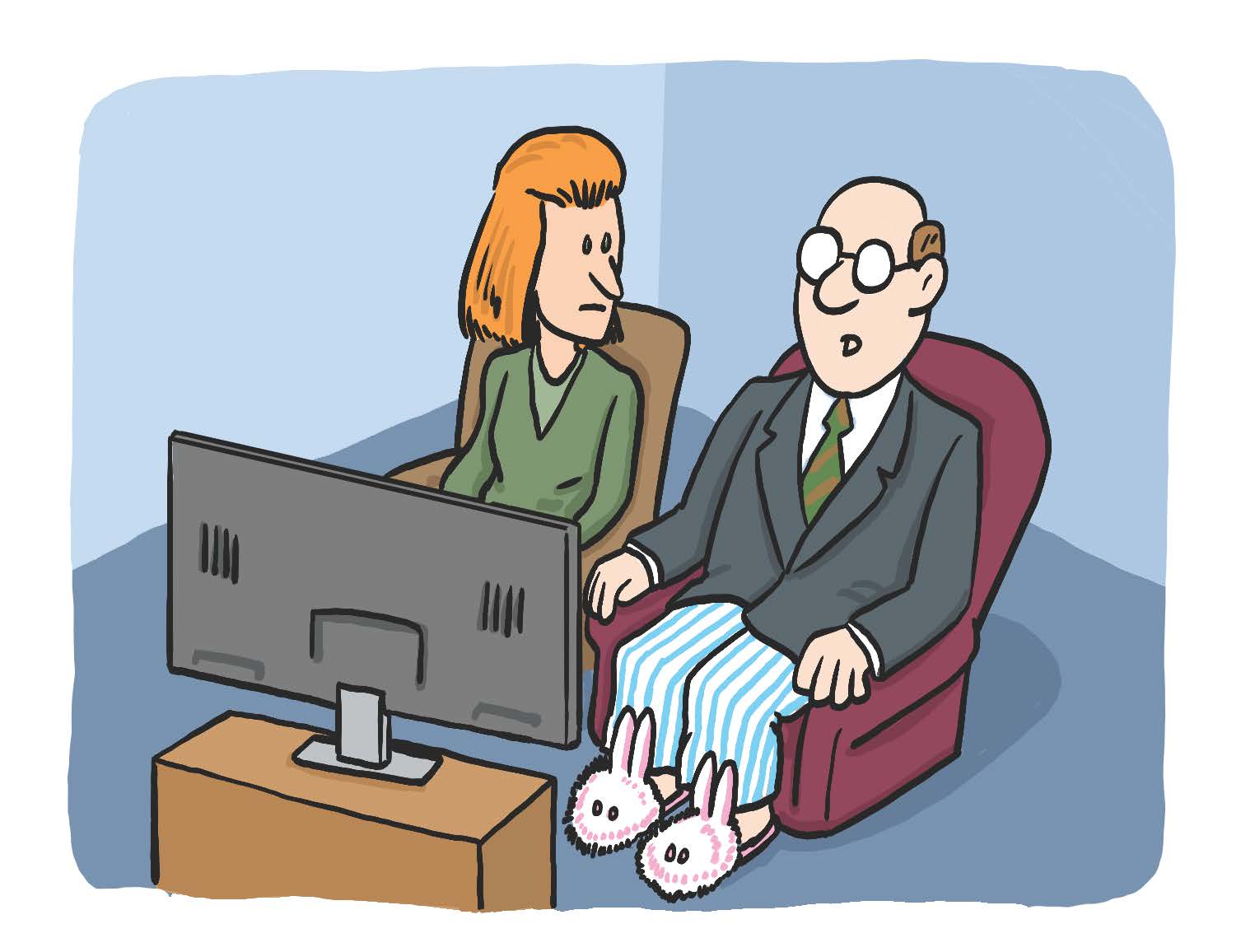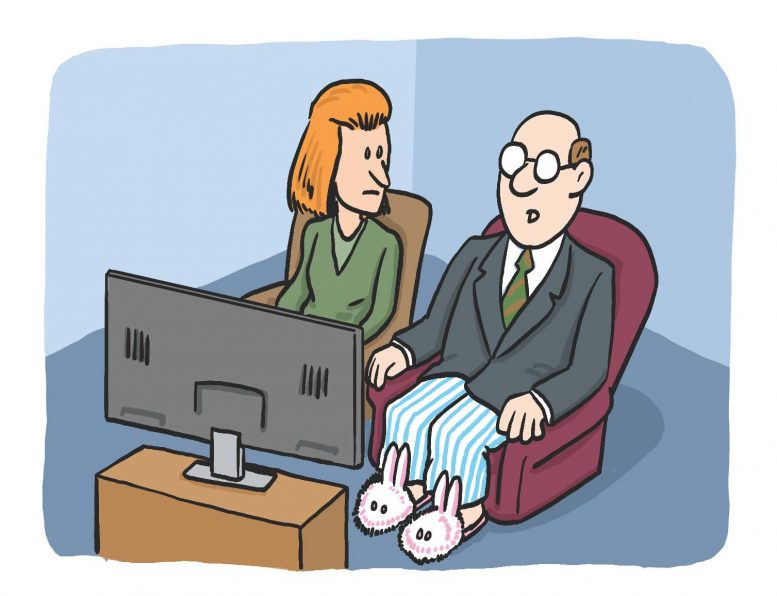 There is a show that I try to watch called A Million Little Things. It takes place in Boston and follows a group of close friends who are dealing with many current societal issues. I enjoy how it presents issues in a creative way that is both thoughtful and entertaining. The show also provides different perspectives on important issues.
There is a show that I try to watch called A Million Little Things. It takes place in Boston and follows a group of close friends who are dealing with many current societal issues. I enjoy how it presents issues in a creative way that is both thoughtful and entertaining. The show also provides different perspectives on important issues.
One of the main characters is Gary. From the start, I found it very easy to relate to him. Gary is incredibly loyal and will do just about anything to help his friends. I was well into watching the show when it was revealed that Gary is an actuary. Of course, that made me like Gary even more. It also left me puzzled because Gary doesn’t seem to work very much—unfortunately, that is something I cannot relate to at all.
Last spring, at the end of season 3, Gary’s temper got the best of him and he appeared to go too far in his efforts to seek justice for a friend.
What the writers of the show probably do not know, but hopefully you do, is that the actuarial professional is self-regulated and has a Code of Professional Conduct (the Code). Gary needs to be careful; it is not just the law about which he needs to be mindful. As an actuary, he also needs to consider the Code!
Precept 1 of the Code addresses integrity:
An Actuary shall act honestly, with integrity and competence, and in a manner to fulfill the profession’s responsibility to the public and to uphold the reputation of the actuarial profession.
Annotation 1-4: An Actuary shall not engage in any professional conduct involving dishonesty, fraud, deceit, or misrepresentation or commit any act that reflects adversely on the actuarial profession.
Some of the key words here are any act and reflects adversely on the actuarial profession.
We represent our profession through all our actions, not just our professional work. Failure to build and maintain trust with the public—and especially our principals—can undermine the ability of the actuarial profession to fulfill its obligations. This means that everything we do, whether part of our professional or private lives, is subject to the Code.
Running afoul of the Code may involve the Actuarial Board for Counseling and Discipline (ABCD). To effectively self-regulate, the actuarial profession needs not only to have a Code, but also to have a means for enforcing compliance with the Code. Voila—the ABCD.
The ABCD was established 30 years ago by the five U.S. actuarial organizations to handle the compliance function on behalf of all five and avoid unnecessary duplication of effort.
The Board has two primary functions:
- Handling complaints about possible violations of the Code of Professional Conduct by any actuary. These complaints may be made by actuaries or non-actuaries and must assert the actuary materially violated one or more Precepts of the Code. The ABCD may also initiate an investigation of a possible material violation of the Code based on public information. This provides any member of the public who feels mistreated by an actuary with a means to seek redress.
- Responding to actuaries’ requests for guidance on professional issues.
Did Gary cross over a line of acceptable behavior? No spoilers here—see season 4 for more details. If Gary avoids trouble with the law, it is unlikely that a complaint will be submitted to the ABCD. However, if Gary does have legal troubles, it is likely that a complaint will be submitted to the ABCD (or, as noted earlier, that the ABCD will initiate an investigation on its own), in which case the ABCD will proceed as follows:
- The ABCD will initially decide whether the complaint has possible merit. If not, it will dismiss the complaint. If it decides the complaint might have merit, it will appoint an investigator. (In cases involving alleged criminal behavior, the record of the court proceedings will generally be substituted for an ABCD investigation, and the ABCD’s processes will be suspended while the matter moves through the criminal justice system.)
- The investigator is typically an actuary who has experience in the area of the alleged violation. The investigator attempts to determine what happened, reviews files, interviews witnesses, and documents their findings in a report to the ABCD. The report will be given to the subject actuary—Gary in our theoretical example—and he will be asked for his comments.
- The ABCD then determines if the complaint should be dismissed, if the subject actuary should be counseled, or if a hearing should be scheduled. Just a hunch here, but from what I saw in the episode, I think it’s likely that Gary’s case would proceed to a hearing.
- At a hearing, Gary (or any other subject actuary) would be offered the opportunity to appear in person and may bring an attorney to advise him at his own expense. Gary may make an opening statement. The investigator will present their report, and Gary and members of the ABCD may question the investigator. Gary may present evidence and testimony. The ABCD may question Gary.
- At the close of the hearing, the ABCD meets in executive session to decide whether they will dismiss the case, counsel Gary, or recommend discipline to his actuarial organization(s). The ABCD can only make a recommendation for discipline; the actual discipline imposed (if any) is decided and imposed by those actuarial organizations based on the evidence gathered by the ABCD. Discipline may take the form of private reprimand, public reprimand, suspension from membership, or expulsion from membership. The ABCD process is confidential—so unless Gary receives a public reprimand, suspension, or expulsion from one of his actuarial organizations, you will likely never know that he was the subject of an ABCD inquiry.
What will happen to Gary? Most of season 4 will have already been shown by the time you are reading this. Some streaming action may be your best option because confidentiality will likely preclude the ABCD from further comment on Gary’s ability to continue his career as an actuary.
As credentialed actuaries, we all likely recall, fondly, the day we receive our “letters.” Our privilege of earning a living by utilizing those actuarial credentials carries with it a responsibility to act with integrity in everything we do. Should we fail in upholding this privilege, then much will be at risk—including the ability of the actuarial profession to continue self-regulation. The ABCD is here to provide guidance to actuaries and to enforce compliance with the personal and professional requirements of our profession.
As for Gary, stay tuned, because the writers are very good … and how often do you see an actor playing an actuary on TV? Some advice for Gary and all actuaries, though: While there are always a million little things, one to always keep front of mind is the Code.
JOHN J. SCHUBERT, MAAA, FCA, ASA, is a member of the Actuarial Board for Counseling and Discipline.

